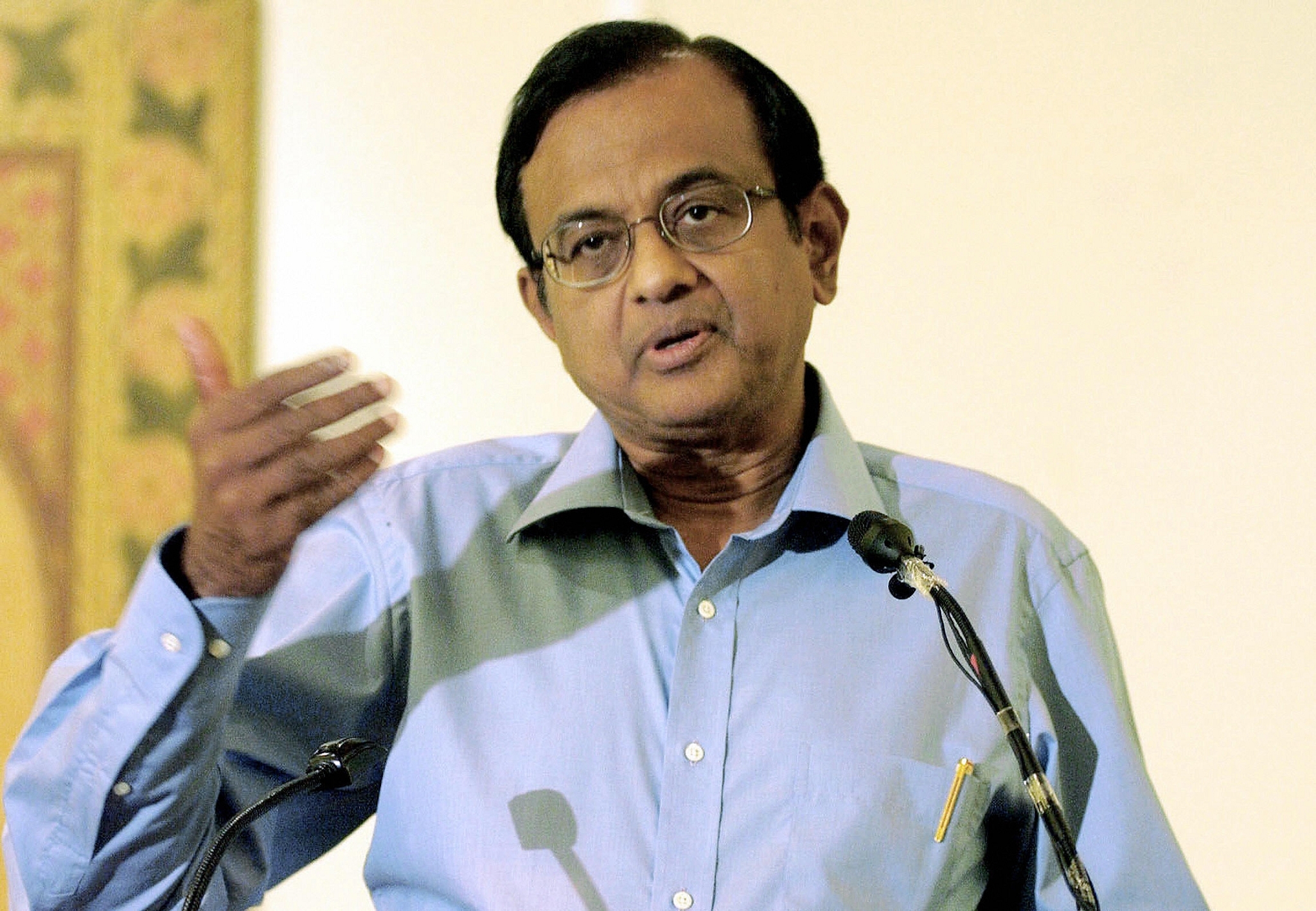Politics
Chidambaram’s Claim That He Would Have Quit If Asked To Demonetise Is Just Tall Talk
- Nothing in his career suggests that Chidambaram is the resigning type. So, while he is within his rights to criticise the demonetisation initiative as a bad idea, there is no reason to assume that he would have resigned if it had been thrust upon him.

P Chidambaram
There are resigning types and there are non-resigning types. Palaniappan Chidambaram, who claimed yesterday (27 November) at the Times LitFest that he would have resigned if he had been forced to demonetise high value notes, probably belongs to the latter category.
It is always easy to claim you would have resigned when you don’t have to do so. So why should we take Chidambaram's word for it? In fact, his track record shows that he has never resigned even on the occasions that may have demanded it.
Did he resign when A Raja went ahead and allotted 2G spectrum at throwaway prices in early 2008 – a decision taken against Chidambaram’s advice? Or on the coal scam or the Commonwealth scam?
Chidambaram did not agree with Raja that spectrum can be allotted at rates determined in 2001. But he wrote to the Prime Minister on 15 January 2008, after Raja had presented the government with a fait d’accompli, that “the past may be treated as a closed chapter and the payments made in the past for additional spectrum (over and above the start-up spectrum) may be treated as the charges for spectrum for that period. However, prospectively, such licensee should pay for the additional spectrum that he holds, over and above the start-up spectrum, at the prices discovered in the auction.”
Both Manmohan Singh and Chidambaram could have refused to accept Raja’s unilateral decision on spectrum, but neither of them quit.
In 2008, when the UPA wrote off farm loans worth Rs 72,000 crore, Chidambaram did not say “sorry, I would rather resign,” even though he knew that the waiver would damage the climate for loan recoveries. In fact, when the Reserve Bank of India resisted the idea, Chidambaram, along with Manmohan Singh, worked out an agreement with Governor Y V Reddy that the government would set aside funds for it, and, according to The Indian Express, “the central bank agreed informally to transfer a higher amount to the government to help ease the burden”. So much for the independence of the central bank.
In the earliest part of his career, when he was a junior minister in the Rajiv Gandhi government, Chidambaram did not resign when Rajiv brought in a draconian Defamation Bill to muzzle the press.
Nor did he resign as minister when the UPA brought in another spine-chilling section in the IT Act – the infamous section 66A that was ultimately struck down by the Supreme Court last year. Former law minister H R Bhardwaj has alleged that Chidambaram and A Raja (then the communications minister) were behind this section, though Chidambaram later claimed the law was badly drafted.
Nor did Chidambaram resign as home minister when 76 CRPF jawans were killed in a Maoist massacre in Dantewada in Chhattisgarh.
Nothing in his career suggests that Chidambaram is the resigning type. So, while he is within his rights to criticise the demonetisation initiative as a bad idea, there is no reason to assume that he would have resigned if it had been thrust upon him.
Introducing ElectionsHQ + 50 Ground Reports Project
The 2024 elections might seem easy to guess, but there are some important questions that shouldn't be missed.
Do freebies still sway voters? Do people prioritise infrastructure when voting? How will Punjab vote?
The answers to these questions provide great insights into where we, as a country, are headed in the years to come.
Swarajya is starting a project with an aim to do 50 solid ground stories and a smart commentary service on WhatsApp, a one-of-a-kind. We'd love your support during this election season.
Click below to contribute.
Latest